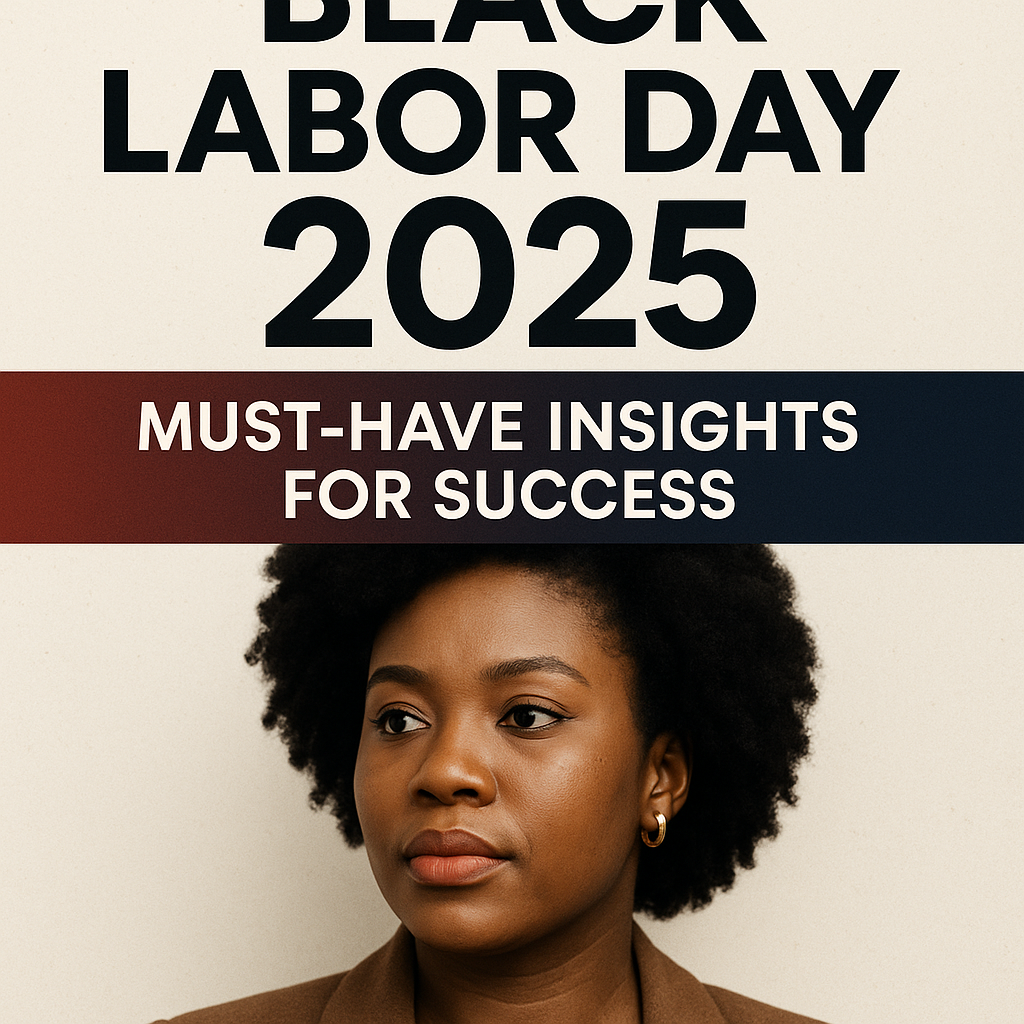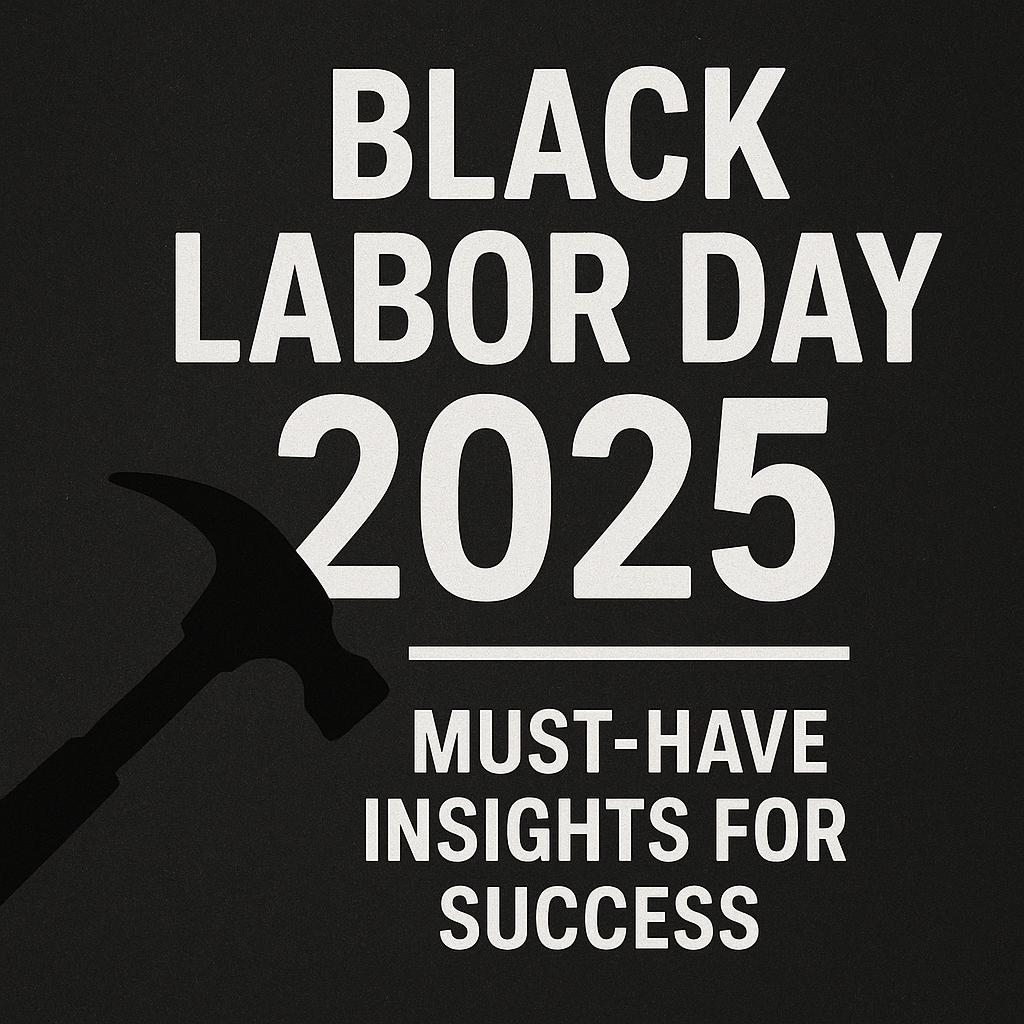Black Labor Day 2025: Must-Have Insights for Success
Black Labor Day 2025: Must-Have Insights for Success
Black Labor Day 2025 is set against a backdrop of both challenge and opportunity. As communities come together to celebrate the achievements of Black workers, it also serves as a vital reminder of the struggles that continue to persist. This year’s observance encourages a deeper exploration of issues surrounding equity, representation, and labor rights in the Black community.
The Significance of Black Labor Day

Black Labor Day isn’t simply an observance; it’s an essential homage to the sacrifices and contributions made by Black individuals in various sectors. Historically, the labor movement in the United States has been fraught with injustices, particularly for African Americans, who often faced discrimination and exclusion from labor unions.
Recent discussions reflect on the current labor landscape as it relates to Black workers. Some sources suggest we are at a “precarious time” as socio-economic conditions shift and the fight for justice in the workplace is amplified. This year marks a pivotal juncture where community leaders and advocates are calling for more inclusive policies that address the challenges Black workers face today.
Challenges Facing Black Workers
The labor statistics paint a sobering picture. Before the pandemic, Black unemployment rates consistently exceeded those of their white counterparts. While there have been gains in certain sectors post-COVID-19, these are unevenly distributed. For example, many reports indicate that Black workers remain underrepresented in lucrative fields such as technology and management, even as they over-index in industries known for lower wages, such as hospitality and service.
Moreover, disparities in pay continue to affect the community. According to a recent analysis, Black workers earn about 75 cents for every dollar earned by their white counterparts. This wage gap not only impacts immediate financial stability but also affects long-term wealth accumulation, thus perpetuating cycles of poverty.
Key Challenges:
– Higher unemployment rates compared to white workers
– Significant wage disparities
– Underrepresentation in high-paying industries
Opportunities for Advancement
Despite these challenges, there are emerging opportunities that could reshape the employment landscape for Black Americans. Many organizations and grassroots movements have begun focusing on investment in Black entrepreneurship and workforce development. Initiatives aimed at closing the skills gap and boosting education have become increasingly popular. Furthermore, sectors such as technology are addressing their diversity shortcomings through targeted recruitment practices.
Community responses are also being shaped by the increasing influence of social media advocacy, where movements calling for equitable treatment in the workplace have gained traction. This includes calls to action that challenge corporations to prioritize diversity, equity, and inclusion (DEI) not just as a checkbox but as an integral part of their operational framework.
Opportunities for growth include:
– Push for Black entrepreneurship initiatives
– Workforce development programs targeting skill gaps
– Emphasis on DEI in corporate hiring practices
Navigating the Future: A Call for Collective Action
Black Labor Day 2025 also serves as a call for collective action. Strategies that have proven effective in other social movements can be adapted to support Black labor initiatives. Building alliances across racial and economic lines may amplify voices advocating for policy reforms that benefit all workers.
A report from the Atlanta Daily World notes how local organizations are working tirelessly to amplify these discussions: “As the realities of racial disparities in employment sink deeper into the community’s consciousness, the need for solidarity among all workers grows stronger.” This solidarity can lead to more robust advocacy for policy amendments that support equitable labor practices.
Conclusion: A Look Ahead
As Black Labor Day 2025 approaches, it invites us to reflect not only on the contributions of Black workers throughout history but also on the pressing challenges they continue to face. While there are significant hurdles to overcome, the emerging landscape offers new pathways for growth and success.
Thus, as we celebrate this day, it’s crucial to engage in meaningful conversations about equity in labor. Whether through encouraging entrepreneurship or advocating for fair hiring practices, communities can enact change. A united front can ultimately lead to a workforce that values the contributions of every worker, setting the stage for a more inclusive future.
In summary, Black Labor Day 2025 is not merely an acknowledgment of past struggles but an active call to action for present and future labor justice. By understanding the intricate dynamics of these labor issues, stakeholders can navigate the complexities of the workforce—and in doing so, pave the way for success for generations to come.















